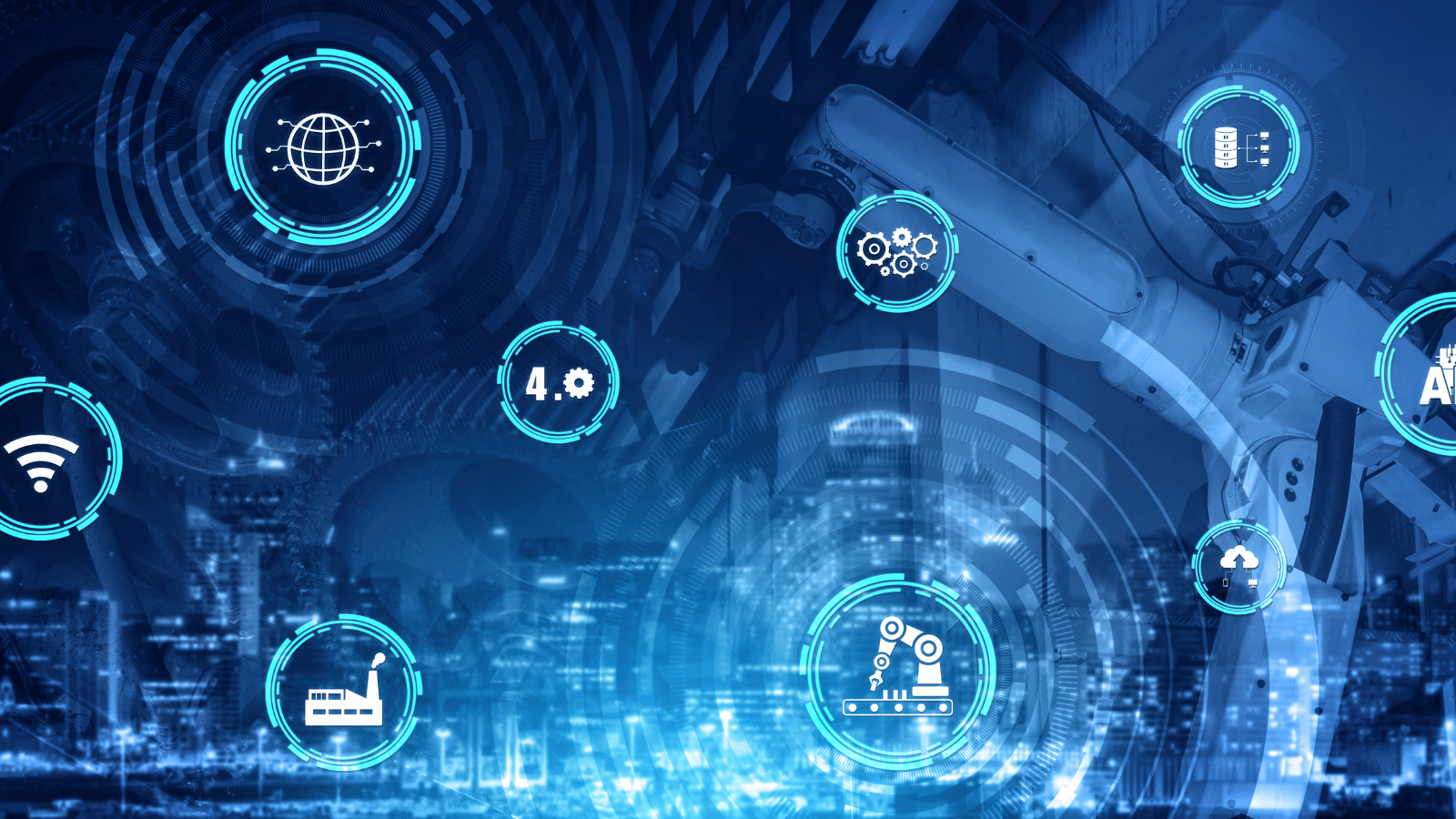Industry 4.0: it’s a term that’s become pretty commonplace in recent years.
Without exception, every major news outlet that covers business and industry will have, at some point or another, covered the ‘fourth industrial revolution’, as it’s also known. But why?
What exactly is Industry 4.0? How is it changing the way organisations operate? And why is a specialist PR consultancy writing a blog about it?
All important questions. So I’ll do my best to answer them.
Industry 4.0 explained
The fourth industrial revolution – Industry 4.0 – refers to the ongoing changes that we’re seeing take place in the workplace thanks to organisations having access to new technologies and previously-unimaginable amounts of information.
Big Data. Artificial Intelligence. Data Science. Machine Learning. These are terms that go hand-in-hand with Industry 4.0, and they refer to the new smart technologies that are enabling firms to take certain tasks that were previously carried out manually – by people – and give them to machines, and software, to carry out.
Stemming from the manufacturing sector – which was suffering from dwindling productivity – the mass automation that is taking place every day is being used to dramatically change the way organisations all over the planet, across a whole host of industries, operate.
At the core of such huge levels of automation is ‘the Factory of the Future’, a phrase used by the likes of the UK government to offer focus to research and roadmaps around the manufacturing sector. In the UK, the Factory of the Future hinges on the desire for British manufacturing to retain a competitive edge on the global stage. Improving the way in which manufacturers operate will drive their financial prosperity.
Okay. So, now we’re up to speed on what Industry 4.0 is, how is it impacting the way we work?
Automation in the workplace: friend or foe?
There’s no doubt that all this automation is changing the way we work. Organisations are mutating at lighting speed. And there’s no sign of this change slowing down. No – it’s a new world for businesses.
For some, that’s an overwhelming thought. Many still view AI and Machine Learning as something out of a dystopian sci-fi film. But here’s the thing: these changes are designed to not only improve efficiency and productivity, but also to improve employee experience.
Thanks to Data Science, automation doesn’t just mean robotic arms on a conveyor belt, assembling a new Toyota Prius. With access to unparalleled amounts of information, organisations are using new insights to automate in ways that streamline work, rendering it more meaningful.
An example: automated programs are used by PR professionals to put press cuttings together for reports, as well as offering key metrics, such as readership statistics and social media shares. Manually performing these tasks used to take hours, or even days. By removing this time burden, space is created for us to do more meaningful work.
With changes like this taking place all the time, knowing what the future of work will look like is a difficult task without expert insight into the fields of data science, AI and business analytics. But that’s where business schools come in:
Industry 4.0 and the role of the b-school
I opened with the statement: “Industry 4.0: it’s a term that’s become pretty commonplace in recent years.”
Now, while that is true – the term is used copiously by some – there’s still a lot of uncertainty as to what the fourth industrial revolution and mass automation truly entails.
Fortunately, as leading business schools and universities, with an abundance of experts primed and ready to dispel myths and identify trends, your institutions are ideally-placed to address any remaining uncertainty around Industry 4.0 and the future of the workplace.
Whether through ground-breaking research, or providing expert commentary, your faculty can help to shape conversations around the future of the workplace and how automation is impacting it. But it all comes down to how you, as communications professionals, share that expertise.
So, ensuring that your faculty members stand out from the crowd is vital. Whether you’re distributing a press release on new research, or pitching out an expert commentator to a journalist, you need to make sure that your messaging is on point, and that you’re offering something that other schools aren’t.
--
The workplace is changing. Industry 4.0 has played a major role in that change. But questions remain around what the future holds for the world of work, what role automation will play, and how the average professional will cope in this new world. Business schools and universities are in pole position to answer these questions through their engagement with the media. But, their ability to do so is dependent on communications and marketing staff communicating research and other faculty content in a way that separates their institution from the crowd.
Ultimately, the schools that are able to distinguish themselves from the rest are the ones the shape public discourse on the topics that matter the most.
Originally published August 2017, updated August 2021





